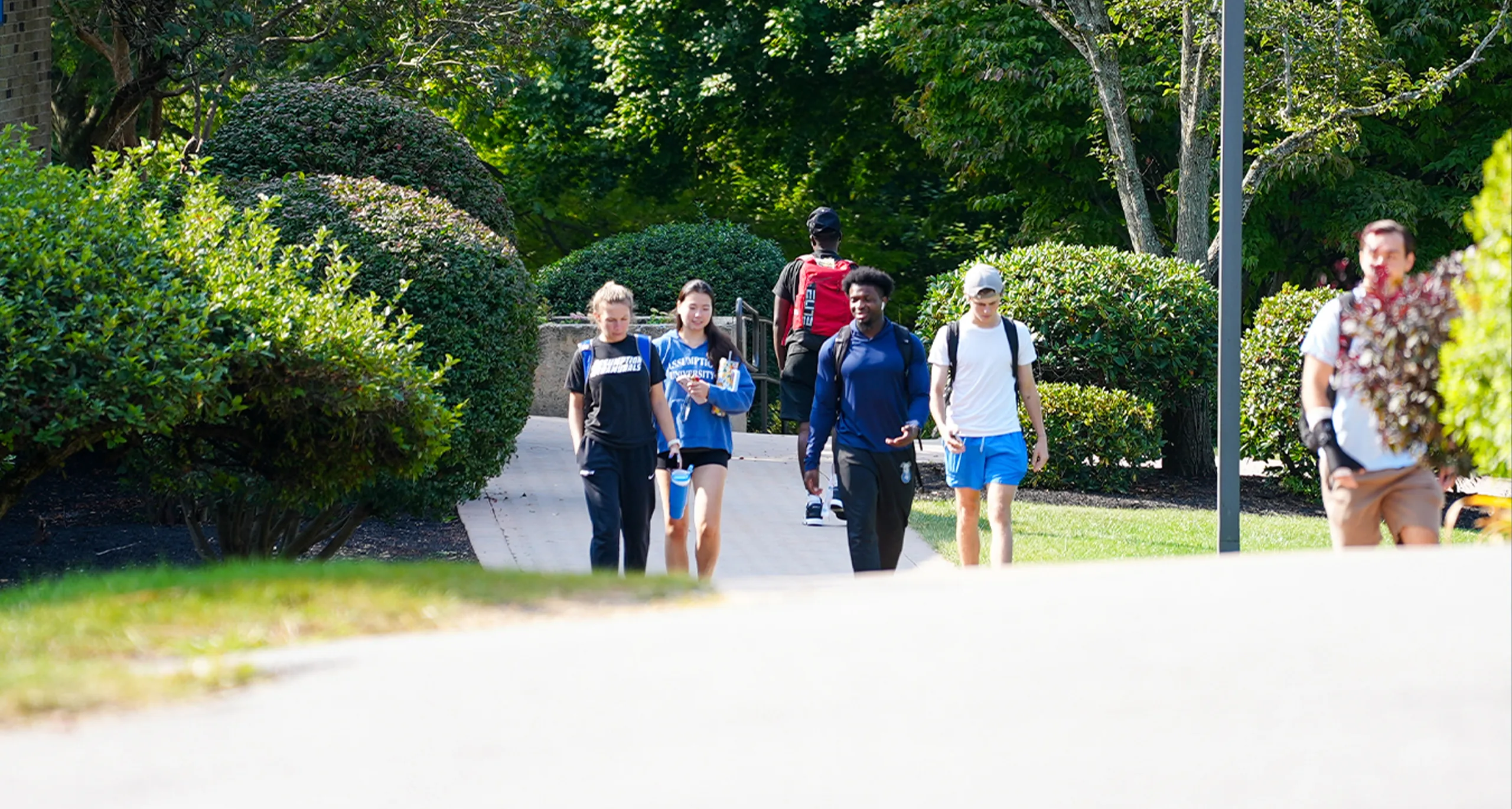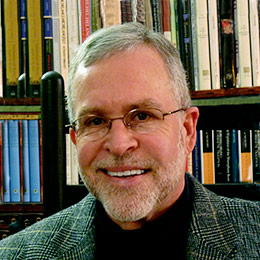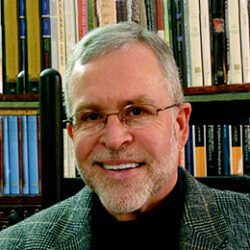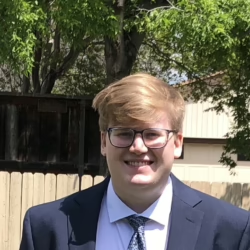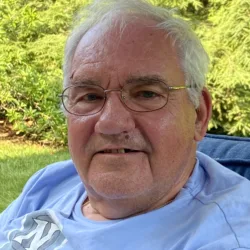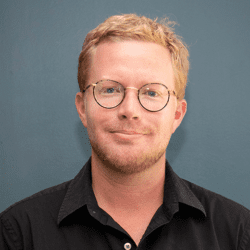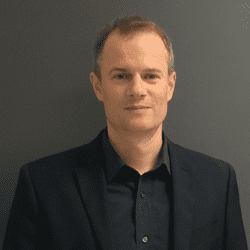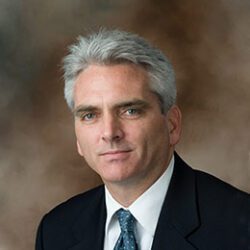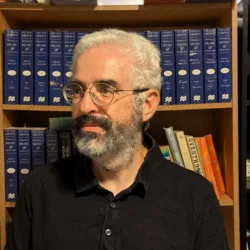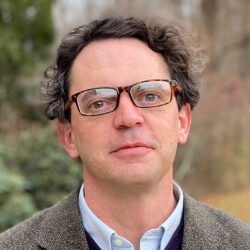Why Study Philosophy at Assumption?
Studying philosophy is the pursuit of understanding the issues by which human beings orient themselves in the world. What is it to be human? What kind of life do I want to live? Is nature hostile, indifferent, or helpful to human beings? What role does God play in human life?
If we do not examine these opinions, we risk leading a life based on illusions and lies. This ascent from unexamined opinions toward knowledge of ourselves, our world, and our place in the world is the beating heart of philosophical inquiry.
Philosophy courses are particularly concerned with developing students’ disposition to deal with these issues mindfully and with reasons in their writing and conversing. They do this by sharing the reasonings of major thinkers of the Western philosophical tradition, such as Plato, Aristotle, Aquinas, Descartes, Kant, and Nietzsche.
Rather than becoming familiar with thinkers’ doctrines, Assumption philosophy students engage thinkers’ questions and the reasons they give for their positions. Philosophy students cultivate intellectual habits of analysis and insight that are sought in every professional field but, most importantly, philosophical inquiry helps students progress toward a knowledge of themselves that allows them to live a better life because it is lived more thoughtfully.
J. Patrick Corrigan, Ph.D
Faculty Profile
EXPERIENTIAL LEARNING
Assumption's Rome Campus
At Assumption's campus in Rome, Italy, the city and the country become your classroom through daily and weekend-long excursions throughout "the eternal city" and the Italian countryside. This unique study abroad experience will enrich your academic and cultural pursuits as you walk in the footsteps of emperors and gladiators then enjoy delectable Italian cuisine or perhaps a cappuccino after class in a local cafe. (Did you know that your financial aid follows you to Rome?)
Explore the Rome CampusLearn the Skills Employers Seek
Faculty/Student Research
The Assumption curriculum encourages scholarly and real-world experience. With hands-on research conducted alongside faculty mentors, students gain a depth of knowledge and skills that lead to professional success and personal fulfillment.Study Abroad
At Assumption University, the world is your classroom. Students can study and explore abroad in over 50 places from Vienna to England, South Africa, and even our own campus in historic, yet modern, Rome, Italy. Assumption’s study abroad program offers culture, history, and a living classroom for all.Internships
Assumption starts planning for your future the day you arrive on campus. The Denecker Career Development & Internship Center helps students secure exciting and fulfilling internships where you’ll apply knowledge obtained in the classroom in a professional setting, preparing for a future career or additional study. Assumption connects students to internship opportunities in corporations, government agencies, research hospitals, non-profit organizations, and more.First-rate Academics in a Catholic University Setting
Assumption University awakens in students a sense of wonder, discovery, and purpose, forming graduates known for their intellectual seriousness, thoughtful citizenship, and devotion to the common good. Students are provided an education that shapes their souls, forms them intellectually, and prepares them for meaningful careers. Enlivened by the harmony of faith and reason, here, students’ minds and hearts are transformed.

